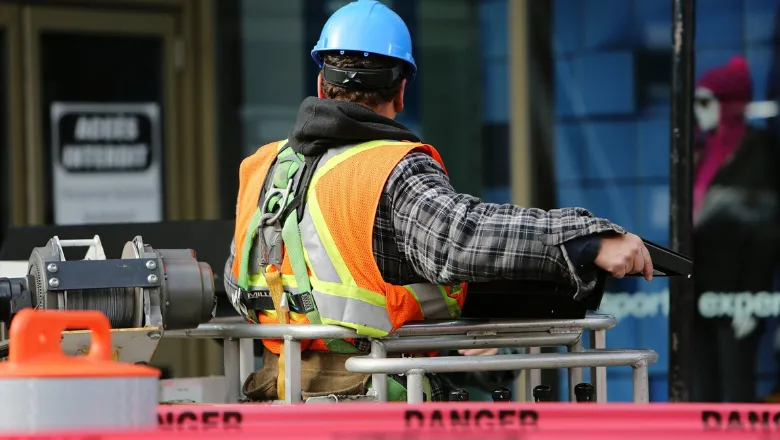14 October 2024
COMMENT: Ten years after the enactment of the Modern Slavery Act, there's hope that organisations will start walking the talk
Dr Gabriela Gutierrez Huerter O’, technical adviser on a new standard on organisational responses to modern slavery, explains new developments that could ensure organisations take greater accountability

Nearly ten years on from the UK’s Modern Slavery Act, modern slavery remains a pressing issue. In the construction industry, where labour exploitation is a particular concern and major listed companies operate alongside small enterprises, the National Crime Agency (NCA) reported a shocking 53% rise in cases between 2021 and 2022. Factors such as Brexit, global conflicts, and climate-related migrations have left many migrant workers vulnerable to exploitation.
The limitations of the Modern Slavery Act
The Modern Slavery Act was hailed as a milestone moment in the UK’s battle against human trafficking, amalgamating previous laws and introducing new prevention and victim support strategies. But perhaps the only meaningful change in business practice that has resulted from it has been the routine publication of modern slavery statements.
The limits to the Act’s effectiveness reflect both how the problem of modern slavery was perceived and the compromises made during its drafting. The original proposals focused on the criminalisation of modern slavery, rather than imposing any obligations on business. Although it was eventually accepted that the Act must address the role of business in labour exploitation in their supply chains, lobbying by multinational companies and certain NGOs ensured that the most lenient possible approach was adopted and one that avoided any possible criminal penalties for companies.
Without robust monitoring and enforcement mechanisms, organizations have been able to fulfil their statutory requirements with minimal accountability. My research has shown that both government and businesses have consistently portrayed modern slavery as a result of criminal activity that infiltrates businesses and an ‘inevitable’ feature of today’s economy. Through the use of impotent strategies they have denied any responsibility for modern slavery and overlooked the gaps in accountability inherent in the model of outsourcing and subcontracting.
Evolving perspectives, frameworks and legislation
More recently we have seen advocates from different industries, think tanks and professional bodies pushing for a re-evaluation of corporate ethics to demand that businesses take greater responsibility for the negative consequences of their business models.
This approach also informs the new British Standard 25700, for which I was a technical adviser. The Standard was introduced as a comprehensive framework for organizations of all sizes to tackle modern slavery risks. It is free to access for organisations of all sizes and provides detailed guidance on prevention, identification, and remediation strategies. The BS 25700 is set to be adopted into the new ISO 37200 by June 2026. This will make it the global standard by which businesses can benchmark and potentially certify the steps they take to address modern slavery throughout their supply chains.
Alongside the development of a voluntary framework, we are seeing a change in political attitudes. Internationally, there are growing calls for mandatory due diligence on modern slavery across Europe. The (CSDDD) requires organizations to proactively identify and mitigate human rights violations in their supply chains. Countries including Germany, France and New Zealand, are strengthening their national legal frameworks to combat modern slavery, reflecting a global shift towards more stringent regulatory environments.
Change in the UK?
In response to growing dissatisfaction with the Modern Slavery Act, civil society and corporate stakeholders have rallied behind a Private Members Bill in the House of Lords. The proposed ‘Commercial Organisation and Public Authorities Duty’ (OPAD) Bill seeks to impose mandatory due diligence on businesses, addressing gaps in the current legislation. There have also been signals from the new Government that reforms to the Modern Slavery Act could be on the legislative agenda.
In the construction sector, the Business Services Association, which represents organisations involved in service and infrastructure projects across the private and public sectors has issued its own toolkit focussed on its members’ particular needs and risks. The new Government’s goal to build 1.5 million homes in five years could also present an opportunity to use the levers of infrastructure development and procurement reforms to embed stronger anti-modern slavery measures in large-scale projects.
Coordinated action between government and industry has the potential to address modern slavery by dismantling the conditions that allow it to flourish. While there are encouraging signs of change, too many organisations still lack an understanding of how to address modern slavery risks effectively. If they want to show that they are serious about respecting human rights and combatting modern slavery, they will need to rise to higher expectations both in the UK and internationally.
Further reading
Gutierrez-Huerter O, G., Gold, S., & Trautrims, A. (2023) Change in rhetoric but not in action? Framing of the issue of modern slavery in a high-risk sector for labor exploitation in the UK. Journal of Business Ethics, 182, 35-58
Find out more about BS25700: Organizational Responses to Modern Slavery.
Read more about the issue of decent work in this recent blog by Dr Catherine Tilley: ‘COMMENT: EU legislation and worker well-being’.

